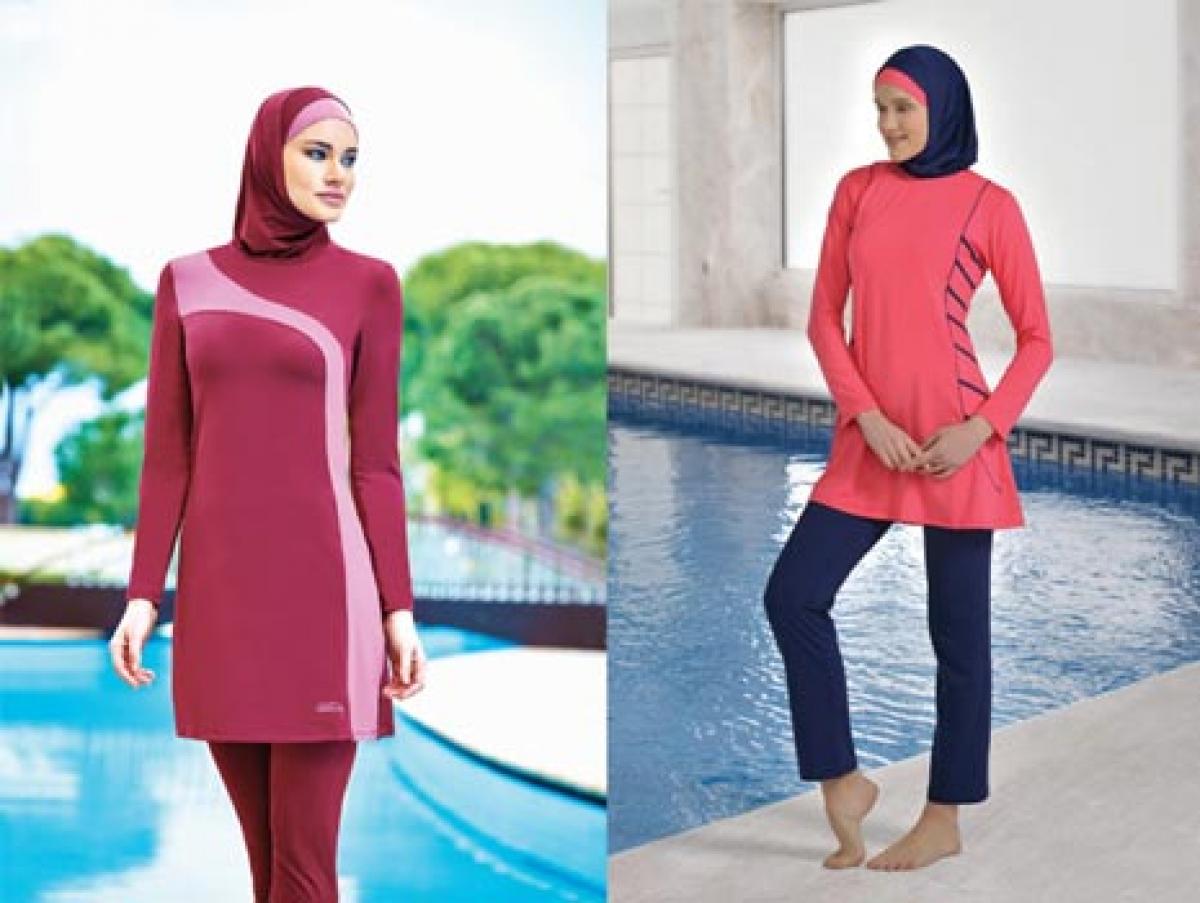What is Burkini?

Zanetti\'s company Ahiida owns the trademarks to the words burkini and burqini, but they have become generic terms for similar forms of Islamic swimwear. In 2016, a number of French municipalities banned the use of burkini, which sparked an international controversy. It resembles a full-length wetsuit with a built-in
A burkini is a type of swimsuit for women, designed in Australia by Aheda Zanetti. The suit covers the whole body except the face, the hands and the feet, while being light enough for swimming. The design is intended to accord with Islamic traditions of modest dress.
Zanetti's company Ahiida owns the trademarks to the words burkini and burqini, but they have become generic terms for similar forms of Islamic swimwear. In 2016, a number of French municipalities banned the use of burkini, which sparked an international controversy. It resembles a full-length wetsuit with a built-in hood, but is somewhat looser and made of swimsuit material instead of neoprene.
Other styles of "Islamic" swimwear include the veilkini and MyCozzie brand. Zanetti criticized the mycozzie suit, claiming it used lycra and was unsafe. This was disputed by the designer of the mycozzie swimsuit.Zanetti estimates that 40 percent of her customer base has been non-Muslim and includes Jews, Hindus, Christians, Mormons and women with various body issues. Incidentally, men have also evinced an interest in the dress.
In Australia, the burkini has been worn by female beach lifeguards while it has found popularity in Israel, both among the Jewish-Haredi and among Muslims. There it is called either burkini or simply ‘modest swimwear’."In 2014 some private pools in Morocco's tourist hotspots prohibited the use of burkini citing hygiene reasons", which sparked a political controversyIn August 2009, a woman in France was prevented from swimming in a public pool for wearing a burkini, amidst ongoing controversy about Islamic dress. The action was justified by reference to a law that forbids swimming in street clothes.
In August 2016, the mayor of Cannes banned the swimsuits, citing a possible link to Islamic extremism. At least 20 other French towns, including Nice subsequently joined the ban. Dozens of women were subsequently issued fines, with some tickets citing not wearing "an outfit respecting good morals and secularism", and some were verbally attacked by bystanders when they were confronted by the police.
Enforcement of the ban also hit beachgoers wearing a wide range of modest attire besides the burkini. The ban enacted by the commune of Villeneuve-Loubet has been suspended by France's highest administrative court, setting a potential precedent for further legal challenges.














